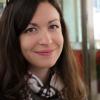This reality can create unique pedagogical challenges. How can we strike the right balance between free expression and sensitivity, objectivity and subjectivity, when dealing with such intimate territory?
These challenges, however, can also be productive. As feminist researchers have argued, the intersection between the personal and the intellectual can be a particularly rich site of analysis. In the classroom, the dialogue between the professor, the reading material and students’ lived experiences can take us all to a higher level, forcing us to rethink not only our research agendas but also our own relationships, politics, and social actions.
The Institute offers a rich curriculum on gender to help students navigate these complexities. We have courses on gender and development; gender and international affairs; public policy, economic development and gender; reproductive politics in the 20th and 21st centuries; population and development; gender, sexuality and decolonisation; women and kinship; religion, politics and sexuality; gender and bodies in global health; gender and international relations; and the sociology of gender. Students in the interdisciplinary programmes can pursue a minor in gender, and most courses are open to students from the disciplinary programmes. The Institute’s Executive Education programme offers further courses on gender, including a new course on “gender in the time of pandemics”.
The Gender Centre also provides a space for interdisciplinary exchange beyond the classroom. Our Gender Seminar Series (GSS) features research on everything from domestic work to populism to international law. We hold regular public events: last semester, this included a series of lectures on gender and race, and this spring we will hear talks on feminist decolonisation and on sexual violence against men. We also collaborate with student groups to organise events, and invite PhD students to apply for affiliation with the centre.
Over the years, I have benefited significantly from these activities, as spaces not only to share knowledge but also to learn from others who have challenged my own assumptions and perspective. Indeed, as much as I am a professor, I also consider myself a lifelong student, especially when it comes to the immensely multifaceted field of gender studies.
This article was published in Globe #27, the Graduate Institute Review | Spring 2021
Photo credit: AFP Photo/Georges Gobet
GENEVA GRADUATE INSTITUTE
Chemin Eugène-Rigot 2A
Case postale 1672
CH - 1211 Geneva 1, Switzerland
+41 22 908 57 00
ADMISSIONS
prospective@graduateinstitute.ch
+ 41 22 908 58 98
MEDIA ENQUIRIES
sophie.fleury@graduateinstitute.ch
+41 22 908 57 54
ALUMNI
carine.leu@graduateinstitute.ch
+ 41 22 908 57 55



